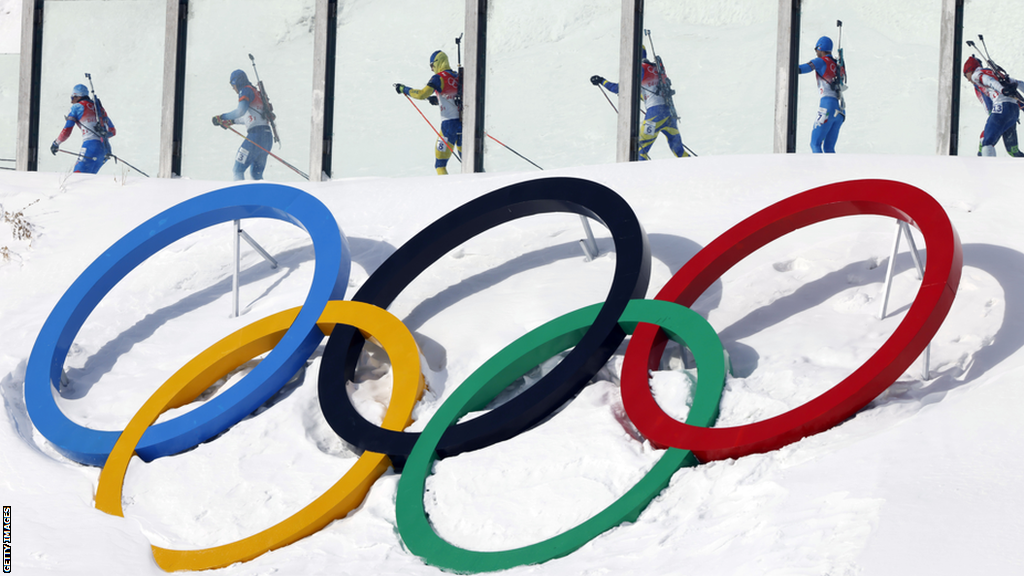Winter Olympics: Impact of climate change will reduce countries that can host snow sports says IOC
- Published

More than 100 snow generators and 300 snow-making guns were deployed at Beijing 2022
Only 10 countries will be able to host snow sports by 2040 due to the impact of climate change, says the International Olympic Committee.
The 2030 and 2034 Winter Olympics and Paralympics hosts are set to be named on the eve of the Paris Games in 2024.
"The Future Host Commission has started to address this very concerning situation," said IOC president Thomas Bach.
Beijing 2022 was the first Games to use virtually 100% artificial snow.
Artificial snow was first used in winter sports in the 1980s.
Vancouver 2010, Sochi 2014 and Pyeongchang 2018 all relied to some extent on artificial snow, although usage in China's capital last year was at an unprecedented high.
More than 100 snow generators and 300 snow-making guns were deployed working flat out to cover the ski slopes.
"From these numbers, it becomes even clearer that we need to address very quickly these dramatic impacts of climate change on winter sport,"added Bach.
"The the preliminary results [projections] already show that we need to adapt the Olympic Winter Games given the impact of climate change.
"This implies deliberations on a rotation system, the composition of the programme, the different needs for sports on ice and snow, and many others."
Bach, who has previously played down the prospect of a double award for 2030 and 2034 Winter and Paralympic Games, added that IOC executive board would enter targeted dialogue with the prospective hosts between 28 November and 1 December.
Venues vying to hold the 2030 Games include Salt Lake City in the United States, Sweden, Switzerland and France.